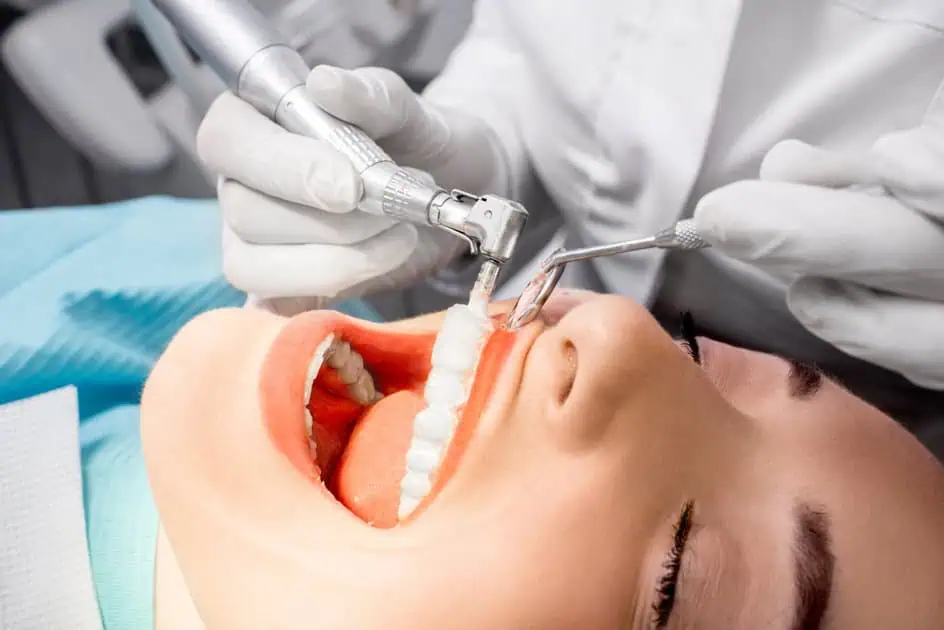Table of Contents
Prioritizing the preservation of your natural teeth is essential for maintaining dental health. At Stratland Dental in Glendale, AZ, we specialize in Endodontic Treatments to save teeth that might otherwise need to be extracted, but why is preserving your natural teeth so important, and what are the benefits? Let’s explore the advantages of endodontic treatments, commonly known as root canal therapy, and why they are a superior option compared to tooth extraction.
What Are Endodontic Treatments?
Endodontic treatments address problems with the dental pulp—the soft tissue containing nerves and blood vessels inside teeth—which may become inflamed or infected due to decay, injury, or cracks. The treatment involves removing infected pulp, thoroughly cleaning and disinfecting the tooth’s interior, and sealing it to prevent future infections. Modern endodontic procedures, including root canals, are actually straightforward and typically no more uncomfortable than getting a standard filling.
The Benefits of Endodontic Treatments
- Preserving Your Natural Teeth: One of the primary benefits of endodontic treatments is that they allow you to keep your natural tooth. While dental prosthetics like implants, bridges, or dentures are available, they can only partially replicate the look, feel, and function of a natural tooth. Keeping your natural teeth helps you maintain proper chewing function and a natural bite, which is crucial for overall oral health.
- Avoiding the Hassle and Expense of Tooth Replacement: When a tooth is extracted, replacement options, including dental implants or bridges, are often needed. These procedures can be costly, time-consuming, and require multiple visits. Endodontic treatments are generally more affordable and less invasive than tooth replacement, making them a more convenient option.
- Short Recovery Time Compared to Tooth Extraction and Replacement: Patients often experience a shorter recovery period after a root canal compared to tooth extraction and replacement. Tooth extraction can cause discomfort and often requires a longer healing period, especially if a dental implant is placed later. On the other hand, root canal therapy typically results in only mild discomfort that can be managed with over-the-counter pain relief, allowing patients to return to their daily activities sooner.
- Maintaining Jawbone Integrity: The condition of your jawbone is greatly influenced by your teeth. Because there is no longer any stimulation after a tooth extraction, the surrounding bone may gradually degenerate. Saving your natural tooth with an endodontic treatment helps preserve jawbone strength and structure, maintaining both your facial aesthetics and overall oral health.
- High Success Rate and Long-Lasting Results: When properly maintained, many teeth repaired with root canal therapy can last a lifetime, and endodontic treatments have a high success rate. You can prolong the life of your treated tooth by consistently seeing your dentist and maintaining proper oral hygiene. This durability makes endodontic treatments a reliable and effective option for restoring your smile.
Addressing Common Misconceptions About Endodontic Treatments
Despite the clear benefits, there are still many things that need to be clarified about root canal therapy that make some patients hesitant to seek treatment. Let’s debunk some of these myths:
Myth 1: Endodontic Treatments Are Extremely Painful
One of the most persistent misconceptions is that a root canal is a painful procedure. However, advancements in dental technology and anesthetics have made root canal therapy relatively painless. In fact, most patients find it more comfortable than getting a standard filling, and the pain from an infected tooth is typically far worse than any discomfort experienced during the treatment.
Myth 2: It’s Better to Extract the Tooth
Some people think extracting a damaged tooth is a simpler solution. However, losing a natural tooth can cause complications like shifting teeth, bite problems, and bone loss. Endodontic treatments eliminate pain and infection while preserving the natural structure of your mouth, making it a better choice for both your oral health and your budget.
Myth 3: Recovery Is Long and Complicated
As mentioned earlier, the recovery from a root canal is generally swift and uncomplicated. Any worry you may have over the procedure can be reduced by being aware of the root canal process. The treated area may feel sore for a short period, but this discomfort is manageable with simple pain relief.
The Endodontic Treatment Process: What to Expect
Understanding the root canal process can help ease any anxiety you may have about the procedure. Here’s what typically happens during an endodontic treatment:
- Initial Examination and Diagnosis: Your dentist will perform a detailed examination, including possible X-rays, to assess damage and infection. In the event that a root canal is required, your dentist will answer your questions and describe the procedure.
- Numbing the Area: Local anesthesia is used to fully numb the affected tooth area to ensure your comfort during the procedure.
- Cleaning the Canal: The dentist will make a small hole in the tooth to access the damaged pulp. After the pulp is extracted, the tooth’s interior is cleansed and sanitized.
- Filling and Sealing: To stop infections in the future, a biocompatible substance is poured into the empty canal and sealed. A temporary or permanent filler is then used to seal the opening.
- Restoration: To regain the strength and functioning of the treated tooth, a crown is frequently applied. This step is usually done in a separate appointment.
Choosing Stratland Dental for Endodontic Treatments in Glendale, AZ
At Stratland Dental, we are dedicated to preserving your natural teeth and ensuring you receive the highest level of care. Our skilled team uses advanced technology and techniques to make endodontic treatments as comfortable and efficient as possible. We understand that dental anxiety is common, and we take every step to ensure a stress-free experience.
By choosing us for your Endodontic Treatments in Glendale, AZ, you’re making a decision that benefits your oral health, overall well-being, and wallet. In order to encourage healing and long-lasting effects, our individualized approach guarantees that each patient receives customized therapy and aftercare instructions.
How to Maintain Your Treated Tooth
The longevity of your repaired tooth depends on proper post-root canal treatment. Here are some aftercare tips:
- Practice Good Oral Hygiene: To maintain the health of your teeth and gums, brush and floss twice a day.
- Regular Dental Checkups: To keep an eye on the condition of your treated tooth, schedule routine cleanings and examinations with your dentist.
- Avoid Hard Foods: Be cautious with hard or sticky foods that could damage your restored tooth, especially if you have a temporary crown.
If you’re experiencing tooth pain or suspect you need a root canal, don’t wait. Schedule an appointment at Stratland Dental today. Saving your natural tooth could be the best decision for your long-term oral health—contact us to explore your options today.





